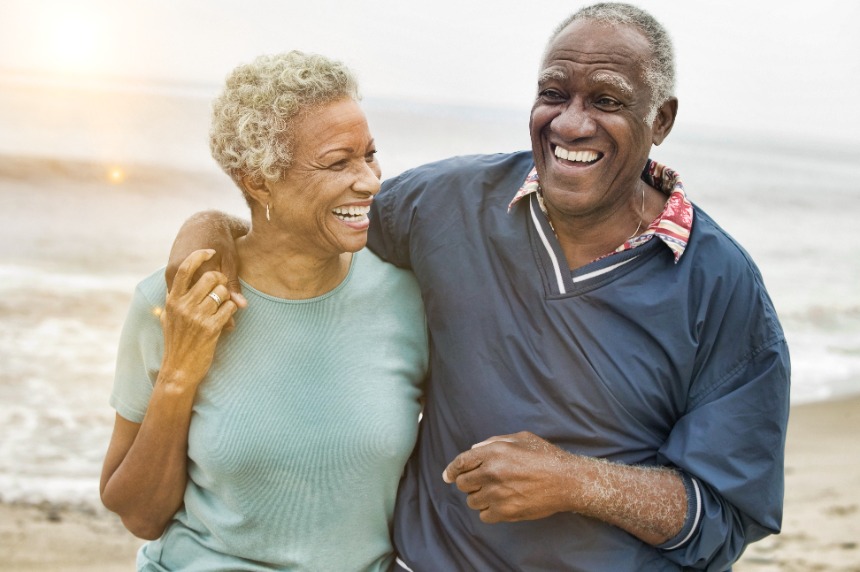Do you find your anxiety levels spiking as you grow older? Or, do you regularly worry about what the future will hold for you as you age or fret over lost time? Although aging is something we all go through, we all handle the process differently.
In her “Psychology Today” article entitled, “Do You Have ‘FOGO?’ Taming the Fear of Getting Old,” Meg Selig shares the following:
“How common is the fear of getting old? So common that this fear even has its own acronym—FOGO, “Fear of Getting Old.” Although less catchy, the term “gerontophobia” is sometimes used to describe the same thing.”
Contrary to what some may figure, aging-related anxiety doesn’t only happen to the oldest crowd. This anxiety type can strike at any age. That’s because it’s mostly a negative focus on time gone by we can never get back again or future unknowns. Regardless of our age, that is something we all can relate to.
That’s why, depending on the level of harmful rumination, a 20-year-old individual could struggle more with aging anxiety than someone who is 80. And, of course, a midlife crisis can strike well before the golden years. Yes, sometimes anxiety gets worse with age when we reflect more on growing older, but not always.
All of us experience some level of anxiety throughout the aging process. Some may say they don’t have any stress or anxiety about aging. Still, much of this can happen under the surface without us realizing how much it affects us.
There isn’t much you can do to improve your aging anxiety until you finally recognize it’s a problem. Many people live with aging-related stress and anxiety bubbling under the surface. Still, they can’t spot how significant of a problem it is (at least for a while).
If you finally recognize that getting older is stressing you out, you don’t have to feel like you’re alone in this. Maybe you’re bothered by your changing appearance or identity or being viewed differently by others. Regardless of what specifically bothers you about the aging process, here are some thoughts on how to deal with anxiety better as time moves on.
Focus on What You Gained
Our aging-focused anxiety is often increased by stewing over lost moments rather than thinking about what was gained during that time. It can sometimes be hard for you to see, but there are ways you grew as a person during those brief or long moments that slipped away.
Yes, there were rough patches and things happened you wish you could go back and change. We all experience unique challenges and setbacks along life’s journey. But while that clock ticked away, you learned valuable life lessons. You also better understand what is important in life and what isn’t.
Those valuable lessons learned are what you should focus on rather than time lost. And if you have trouble seeing the ways you grew as a person, a close family member or friend will likely be able to help you identify these. It’s often easier for others to see our growth.
Show Gratitude for the Present and the Future
1By the time you’ve finished reading this article, some of your “present” will have slipped into the past. Relish that time as cheap as it may sometimes feel. It’s so easy to take for granted. Some people would give millions of dollars for just a bit more time as you have now. But there comes a moment when all the money in the world can’t buy more time for someone.
For that reason, work at developing gratitude for whatever your present and future may hold. The gift of time you have is a great place to focus. Think of the positives you have and the difference you can make in the lives of those near you. The people around you are what really matter (even the ones who can be difficult). You have time to show others you care about them.
Avoid Buying into Shallow Cultural Expectations
Much of our culture worships youthfulness, and this can be hard to handle for us as we age. The pressure to look and feel youthful can be a heavy weight. If we’re not careful, we can place too much of our significance on how young we appear or feel.
When you compare this societal pressure with many other cultures, you find plenty of other societies have a far different view of age. They respect age and wisdom rather than scorning it like we too often do.
First of all, age signifies that you survived long enough to be considered old (whatever “old” means in a given culture). Many people didn’t live much past forty in the relatively recent past. And the life expectancy in some countries today is still drastically lower than ours.
Growing older means you “earned your stripes.” You were tested in numerous ways and somehow found a way to persevere. A much healthier perspective is to respect the aging process. Plenty of cultures throughout history embraced this idea over too strong of a desire for youthfulness.
Older age can mean you don’t have to keep making so many unpleasant mistakes that all of us make, especially when we’re younger. You develop a greater understanding of the world and people. As a result, you learn how to navigate life’s challenges better. You can also be a significant help to others who haven’t yet had the chance to experience what you have.
All of that to say, be careful not to place unfair, unrealistic, and unhealthful expectations of youthfulness on yourself. Growth as a person is ultimately what you’re after. Yes, your skin may wrinkle as you age, but you can still choose to grow more and more beautiful each day.
Struggling with the Fear of Getting Old? Consider Anxiety Counseling
When you’re wrestling with age anxiety, it can feel like you’re the only person in the world going through such challenges. And if it’s bothering you enough, it can be tough to handle on your own.
If you could use some additional support, consider seeking the help of a therapist for anxiety. You’ll discover evidence-based ways to handle your symptoms of anxiety better. You’ll also have a confidential and trusted place to discuss what’s bothering you and the next best steps to take.
Please contact us if you’d like to learn more about counseling for anxiety at the Orange County Relationship Center. You can also book an appointment with us at your convenience.



